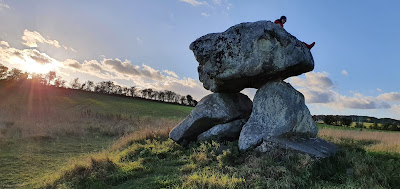 |
| Church Bells, Corfu |
'You will go out in joy and be led forth in peace; the mountains and the hills will burst forth into song before you, and all the trees of the field will clap their hands.' Isaiah 55:12
This will be the second Christmas we will have under Covid-19 restrictions. The shops bravely open and Orchard Road is lighted up. But I doubt that there will be much festivities this Christmas. The number of tourists will be almost negligible, there will be no singing of carols in the churches nor in the shops.
It will be quite a dismal celebration of Christmas. But these two years are not without precedence. Christmas was hardly celebrated in the two World Wars and during world crises throughout history.
Henry Wadsworth Longfellow, America's celebrated poet lived through a tragic Christmas season during the American Civil War, when he wrote the Christmas carol, 'I heard the Bells on Christmas Day.' in 1863. Bishop Gordon Wong introduced me to this carol in a recent sermon.
I heard the bells on Christmas day
Their old familiar carols play,
And wild and sweet the words repeat
Of peace on earth, goodwill to men
I thought how, as the day had come
The belfries of all Christendom
Had rolled along th' unbroken song
Of peace on earth, goodwill to men.
And in despair I bowed my head:
"There is no peace on earth," I said,
"For hate is strong, and mocks the song
Of peace on earth, goodwill to men."
Then pealed the bells more loud and deep:
"God is not dead, nor doth He sleep;
The wrong shall fail, the right prevail,
With peace on earth, the right prevail,
With peace on earth, goodwill to men."
Till ringing, singing on its way,
The world revolved from night to day
A voice, a chime, a chant sublime,
Of peace on earth, goodwill to men
When we peruse the lyrics of the carol, we will probably conclude that this carol is most appropriate for this Covid-19 Christmas, although we are not sure how many church bells will be pealing on the 25 Dec 2021. The carol started with despair but ended in hope.
 |
| Henry Wadsworth Longfellow |
In 1863, Longfellow suffered another blow. His son Charley ran off to enlist in the 1st Massachusetts Artillery. In November, Charley was wounded in battle. Henry Longfellow was full of grief and started questioning the promise of peace announced at the first and every Christmas. In despair he wrote, 'There is no peace on earth, for hate is strong, and mocks the song of peace on earth good will to men.
But in the pealing of the bells, he found a message that peace would come to the troubled nation as well as to Longfellow's troubled mind. He started a follow on stanza with the conclusion, 'God is not dead, nor doth He sleep; The wrong shall fail, the right prevail. With peace on earth, the right prevail.'
Longfellow's message was penned in the poem Christmas Bells. The Christian group Casting Crowns provided an updated version of the old carol.
Christmas cards featuring the manger scene, with angels, shepherds and barn animals well positioned around the Holy Family give us the wrong impression that at the time of Jesus' birth it was a peaceful. In reality, Jesus lived through a time that was a powder keg for rebellion and terrorist activities. The Romans occupied Israel and with it came oppressive rule. The Judeans were subjected to tyrannical governors and puppet kings such as Pontius Pilate and Herod. Those times were anything but peaceful. Nevertheless Jesus' birth brought the hope for peace,
'For unto us a child is born, to us a son is given, and the government shall be on His shoulders. And He shall be called Wonderful Counsellor, Mighty God, Everlasting Father, Prince of Peace. Of the greatness of His government and peace there will be no end.' Isaiah 9:6-7
How can we find peace despite dismal circumstances with every Christmas? Peace during turmoil? Perhaps it should first be found in a person. After having inner peace, we can be at peace with others. Father John Main (Ref 1) stated, 'Peace is a noble objective and a unifying one. In many of the sacred scriptures of both the eastern and western traditions this goal is described as the state of blessedness, of glory, of salvation or simply of life. The sense of being fully, humanly alive.'
It takes courage to express a time for peace in the midst turmoil, crisis, disaster and war. Even so, every Christmas before, during and after wars and pandemics continues to express the message: Peace on earth, goodwill towards men. The Christmas bells rang out in the last stanza of the carol,
Till ringing, singing on its way,
The world revolved from night to day
A voice, a chime, a chant sublime,
Of peace on earth, goodwill to men






